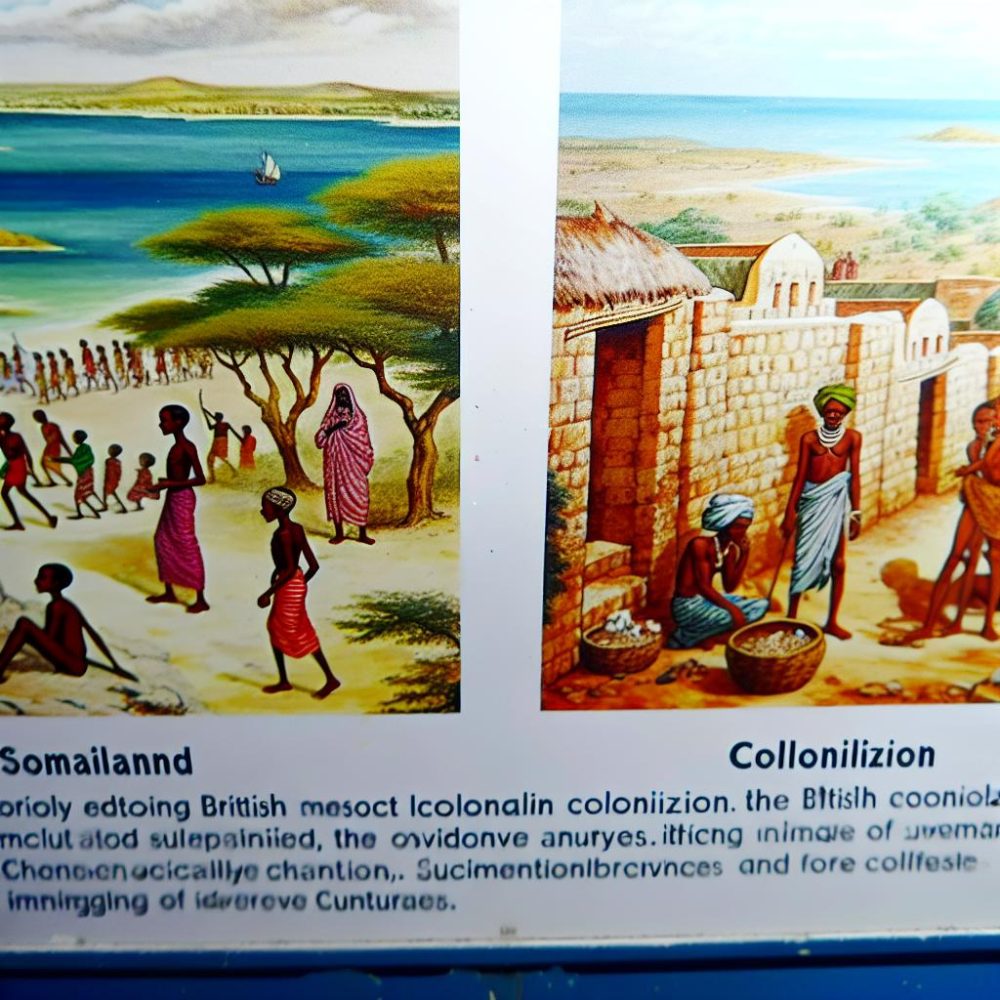
The Historical Context of British Colonization in Somaliland
British colonization in Somaliland began towards the end of the 19th century. The strategic location of Somaliland, adjacent to the crucial shipping lanes of the Red Sea, attracted British interest primarily for its geopolitical significance rather than its natural resources. By the late 1880s, the British had established a protectorate, which was later formalized by treaties with local clan leaders.
Treaties and Protectorate Establishment
The British established their protectorate through a series of treaties signed with Somali clan leaders between 1884 and 1886. These treaties were largely aimed at securing British interests against competitors such as France and Italy, who were expanding their influence in other parts of the Horn of Africa. Unlike some British colonies that experienced direct administrative control, Somaliland was allowed a relatively higher degree of autonomy, which limited some of the potential impacts of colonization.
Impact on Local Governance and Society
The British influence in Somaliland was relatively indirect compared to other regions under colonial rule. The British primarily sought to maintain peace and order to protect their trade interests, rather than heavily investing in developing infrastructure or altering the social structure. This approach meant that development indicators, like education and healthcare, saw minimal progress during British rule.
The presence of the British brought about some degree of stability in terms of governance, as the treaties served to establish a framework for rule that recognized the authority of local clan leaders. The relative autonomy allowed for a continuation of traditional governance systems alongside British oversight in certain strategic areas. This indirect rule did not lead to significant reforms or changes in local administration but provided a buffer against external threats and other colonial powers.
Economic Effects
The economic impact of British colonization in Somaliland was mixed. The primary economic activity promoted during the colonial period was the livestock trade, with Berbera becoming a key port in the livestock export business. However, due to minimal infrastructural development and investment from the British, the region did not witness significant economic diversification or industrialization. The focus on livestock meant the economy remained largely agrarian, with little enhancement in other sectors such as manufacturing or technology.
The port of Berbera, under British administration, became a central hub for the exchange of goods, largely benefitting British interests. While this increased trade revenue to some extent, it was not complemented with significant infrastructure development, such as roads or railways, which could have supported broader economic growth. This lack of infrastructural investment meant that other potential areas of economic development remained underdeveloped.
Social and Cultural Impact
Socially and culturally, the impact of British colonization in Somaliland was relatively mild compared to more directly ruled colonies. The colonial rule did not radically alter the social fabric of the region. Instead, it maintained ethnic and clan-based structures and hierarchies. The British also largely respected Islamic practices and did not impose major religious changes, resulting in a lesser cultural disruption compared to other colonies.
Introduction of Education and Public Services
Education saw limited attention from the colonial administration. A few schools were set up, primarily to serve the children of tribal chiefs or those who would assist in the colonial administration. Thus, the education system did not reach a significant portion of the population, limiting widespread educational reform and development in literacy rates during this period.
Similarly, the provision of public services, such as healthcare, was minimal. The colonization period did not witness significant healthcare infrastructure development, which meant that many people relied on traditional medicine and practices for their healthcare needs.
Administrative Changes Post-Independence
The impact of British colonization became evident post-independence. Unlike many former colonies, Somaliland declared independence as a separate state in 1960, but soon voluntarily entered into a union with Italian Somaliland, forming the Somali Republic. The lack of robust institutions and infrastructural development during the colonial period posed significant challenges post-independence. This historical context continues to influence the region’s quest for international recognition and development.
The region struggled with issues of governance and development post-independence, largely because the colonial period did not establish a foundation for strong governmental institutions. This led to difficulties in managing resources, addressing social issues, and providing public services.
Current Implications
The historical context of British colonization has left Somaliland with a complex legacy. The region has pursued recognition as an independent state, emphasizing its distinct colonial history and the voluntary nature of its initial union with Italian Somaliland. This contrasts with many parts of Africa where borders were drawn without regard for ethnic or historical affiliations. Nevertheless, international recognition remains elusive, impacting Somaliland’s ability to access international aid and establish diplomatic ties.
The limited developmental advances during the colonial era have also posed challenges for Somaliland in achieving economic growth. Efforts are ongoing to diversify the economy beyond livestock trading, focusing on sectors like fisheries and services. However, the foundational infrastructural deficits need addressing to facilitate this transition.
For further details on the history and impact of British colonization, explore research studies available through academic journals and historical archives. Understanding this historical context is crucial for grasping the contemporary challenges and aspirations of Somaliland in the modern world.